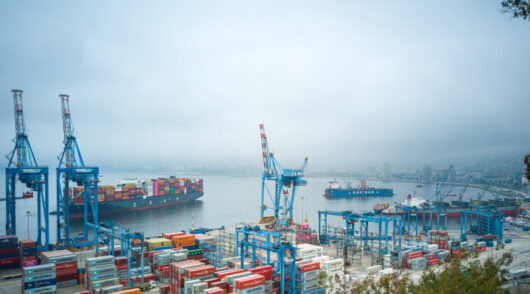The slump in domestic consumption, fueled by high prices and interest rates, is worsening. According to third-quarter corporate results, major department stores in Korea—Lotte, Shinsegae, and Hyundai—have experienced a decline in sales compared to last year. Additionally, the growth of the convenience store industry, resilient during the Covid-19 pandemic, is now slowing down.
Analysts attribute this to a surge in the popularity of overseas travel, particularly to Japan, placing a significant burden on the recovery of domestic consumption. The number of tourists heading to Japan is expected to rise due to an increase in flights by domestic airlines and the prolonged depreciation of the yen.
Financial Supervisory Service data reveals a sharp decline in sales for the country’s top three department stores. Shinsegae Department Store’s sales in the third quarter were US$458.58 million, down 0.9 per cent year-on-year—the first decline in three years. Lotte Department Store also experienced a second consecutive quarter of sales decline, down 2 per cent year-on-year. Sales growth at BGF Retail and GS Retail, operators of the CU and GS25 convenience store chains, has slowed this year.
While domestic demand remains stagnant, the number of travellers to Japan and other countries has skyrocketed. In the first three quarters of this year, close to 4.9 million Korean tourists visited Japan, constituting 28.1 per cent of the total number of foreign tourists during that period. The travel industry predicts that the number of Korean tourists visiting Japan this year will exceed 6 million for the first time since 2018.
The recent decline in the yen’s value has increased passenger seat occupancy rates on Japan-bound routes. Korean tourists, once focused on major cities and famous tourist spots, are now exploring smaller cities.
Overseas spending by Koreans is rising amid the country’s economic slump, primarily driven by increased demand for travel to Japan due to the record-low yen. Experts emphasize the need to attract overseas tourists by improving domestic travel infrastructure to facilitate consumption recovery.
In the first half of this year, outbound consumption spending by domestic residents nearly doubled from the same period last year to $9.4 billion. A substantial portion of this spending is believed to have been in Japan. From January to September, Korean tourists spent an average of $771.0 per person in Japan, totaling approximately $1.292 billion.
While the yen has made travel to Japan more affordable, the cost of travelling in Korea has risen due to inflation. The MZ generation perceives Japan as offering exotic scenery at a similar cost as travelling to Jeju Island, contributing to the shift in travel preferences.
Experts anticipate a significant ripple effect on spending if even a small percentage of overseas travellers return to Korea. The travel industry estimates that if only half of the Koreans who travelled to Japan this year return home, it could boost consumption by more than $2.28 billion, given the average spending of adults in Japan.
This story was originally published by Ashley Song, via Korea Bizwire.






